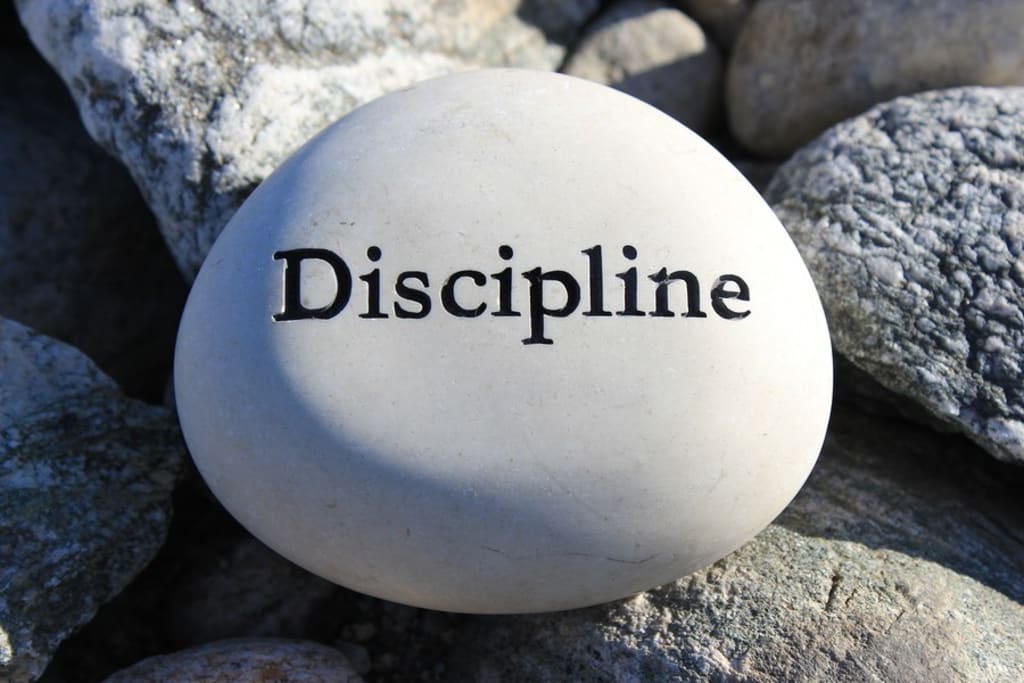
“With self-discipline, most anything is possible.” —Theodore Roosevelt
Discipline is the practice of training oneself to follow a set of rules or a code of conduct, often to achieve a particular goal. It involves self-control, perseverance, and the ability to maintain focus and effort over time. Discipline can be applied to various aspects of life, including work, education, personal development, and relationships. It is often associated with qualities such as consistency, responsibility, and determination. In many contexts, discipline is considered essential for success and achievement. There are several types of discipline, each serving different purposes and contexts:
1.Self-discipline: This involves controlling one's own impulses, emotions, and behaviors to achieve goals. It's about self-regulation and inner control.
2.Parental discipline: This refers to the methods parents use to teach their children appropriate behavior, values, and social norms.
3.Educational discipline: Involves the rules, regulations, and practices within educational institutions that promote learning, respect, and order among students.
4.Work discipline: This pertains to the rules and behaviors expected in a workplace to ensure productivity, professionalism, and cooperation among employees.
5.Legal or societal discipline: Refers to adherence to laws, regulations, and norms that govern behavior within a society or community.
Discipline is essential for personal growth, achieving success, maintaining order, and contributing positively to society. It helps individuals and groups function effectively and achieve their potential. Discipline is of paramount importance for several reasons:
1.Achievement of Goals: Discipline provides the necessary structure and focus to work consistently towards goals, whether they are personal, academic, or professional. It helps individuals stay committed and motivated over the long term.
2.Self-Control and Responsibility: It cultivates self-control, enabling individuals to manage impulses, emotions, and behaviors effectively. This leads to responsible decision-making and actions based on long-term objectives rather than immediate gratification.
3.Productivity and Efficiency: Disciplined individuals tend to manage their time efficiently, prioritize tasks effectively, and maintain a high level of productivity. This is crucial in both personal endeavors and professional settings.
4.Personal Development: Discipline fosters habits of continuous learning, improvement, and growth. It encourages individuals to push beyond their comfort zones, develop new skills, and strive for excellence.
5.Respect and Reliability: Discipline contributes to a reputation for reliability and consistency. It earns respect from others due to the ability to meet commitments, adhere to standards, and fulfill responsibilities.
6.Health and Well-being: Disciplined habits often extend to physical and mental health practices, such as regular exercise, balanced nutrition, adequate sleep, and stress management. These practices contribute to overall well-being and resilience.
7.Building Relationships: Discipline promotes respect, consideration, and reliability in interpersonal relationships. It fosters trust and cooperation, whether in personal friendships, family dynamics, or professional collaborations.
8.Adaptability and Resilience: The discipline to adapt to changing circumstances and persevere through challenges is crucial for navigating life's uncertainties and setbacks. It enables individuals to bounce back from failures and setbacks stronger and more resilient.
In conclusion, discipline stands as a cornerstone of personal development, success, and societal cohesion. It empowers individuals to set and achieve meaningful goals, cultivate self-control, and maintain productivity. Beyond personal benefits, discipline fosters respect, reliability, and strong relationships, contributing positively to communities and workplaces alike. By instilling habits of responsibility, resilience, and continuous improvement, discipline not only shapes individuals into capable and adaptable leaders but also promotes a culture of excellence and achievement. Embracing discipline is therefore essential for navigating life's challenges, realizing aspirations, and making a lasting, positive impact on the world around us.

About the Creator
Enjoyed the story? Support the Creator.
Subscribe for free to receive all their stories in your feed. You could also pledge your support or give them a one-off tip, letting them know you appreciate their work.





Comments
There are no comments for this story
Be the first to respond and start the conversation.